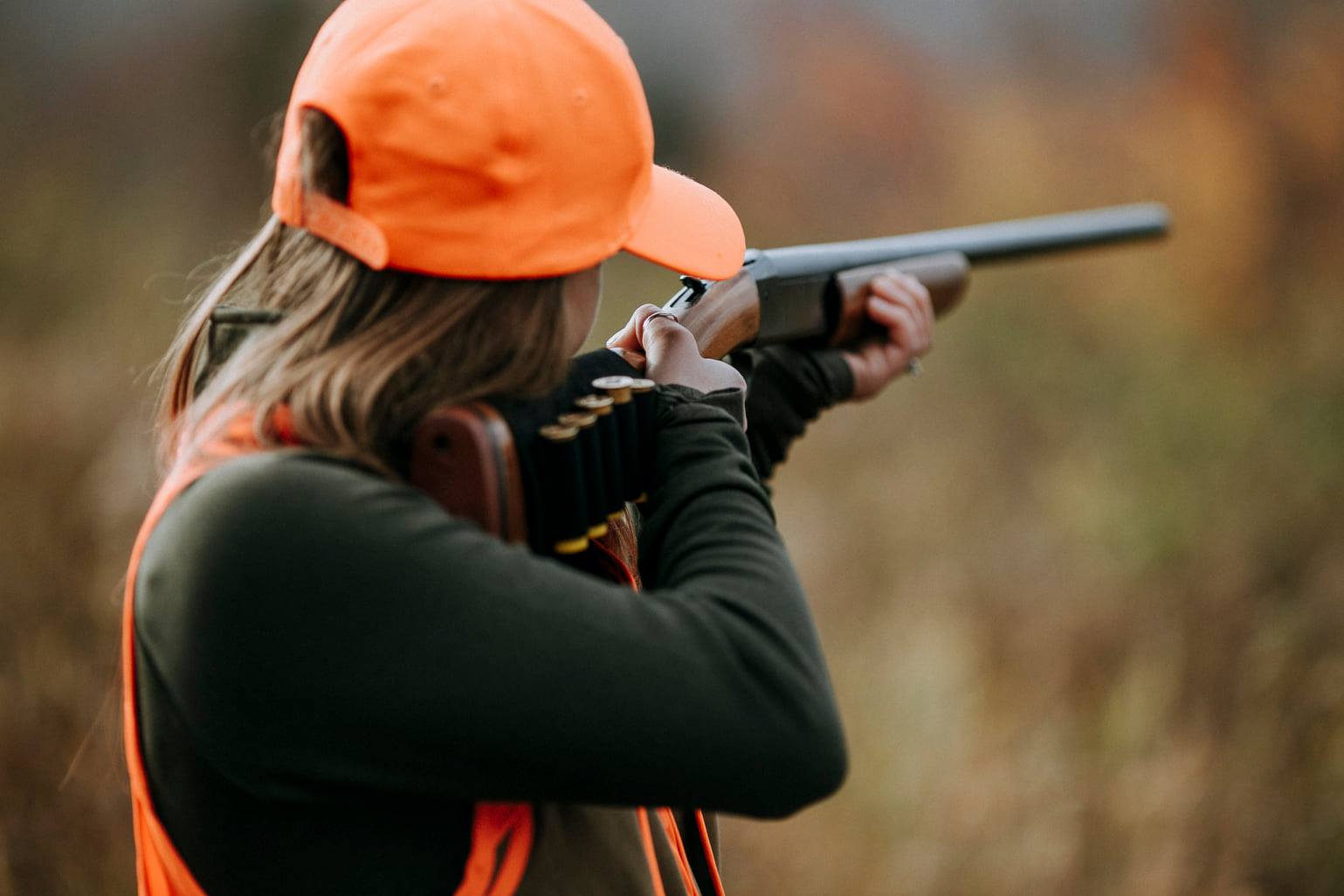Beretta has been making firearms for about 500 years, with a founding date of 1526. It has remained at the top of the heap in quality and respect. Beretta has provided high-quality firearms to the world’s armies and citizens in an unbroken line. Napoleon went to war with Beretta muskets among others, and the Beretta-made Garands are of excellent quality.
The Beretta Model 92 has seen extensive military service. The pistol — in military parlance the M9 — has proven reliable, accurate and easy to use well. Research indicates that there are fewer accidental discharges with the Beretta 92 than practically any other service pistol. While true safety is between the ears, a combination of a positive manual safety, a double-action first-shot trigger, a loaded-chamber indicator and a positive firing-pin block are good features.
The Beretta also seems to be among the least likely of any 9mm handgun to tie up or malfunction. The Beretta isn’t a small pistol, but it is light enough and features a good reserve of ammunition. There are special models, including stainless-steel versions and the Inox line.
Beretta 92 Compact Design
When it comes to personal defense, serious handgunners attempt to retain the power, accuracy, and reliability of the service pistol, while deploying a shorter and lighter version. The Commander size .45, Glock 19 9mm, and SIG P229 are examples. The Beretta 92 Compact isn’t seen as often, but it is a nice handling pistol with excellent performance.
The Beretta 92 Compact isn’t rare, but it is gives the owner real pride of ownership. The pistol illustrated was delivered in a hard plastic case with a cleaning rod, gun lock, and spare magazine, and the pistol is finished in a durable bluing that is flawless in execution. The pistol is serviceable as issued. The author added a set of Wilson Combat grips. The fit and feel are excellent.
The pistol is a double-action first-shot type. The initial shot is accomplished by a long trigger press that both cocks and drops the hammer. The slide recoils and cocks the hammer for subsequent single-action shots. The double-action trigger is tight, but smooth at about 15 pounds. The single-action trigger breaks at a clean 4.25 pounds.
The sights are intended for rapid acquisition at combat ranges and precision fire to at least 50 yards. The Beretta uses the oscillating-wedge lockup pioneered by the Mauser C96 pistol. The open-top slide is a distinctive Beretta trademark.
When examining this Italian-made pistol, the fit, finish and smoothness of operation seemed above average, but that isn’t the only noticeable mark of superior manufacture. The barrel crown was particularly well done with a true 45-degree cut in the crown. This is a step foregone by most makers. This crown aids in good accuracy and also in preventing damage to the rifling.

Beretta 92 Compact Features
The barrel is clipped close to the slide in Beretta Centurion style, making for an attractive appearance and a slightly shorter pistol. The frame is shortened, resulting in cutting magazine capacity from 15 to 13 rounds. The pistol accepts all Beretta magazines, including the 20-round extended version.
The balance is exceptional. The Beretta 92 is among the lightest recoiling 9mm pistols and muzzle flip is subdued. The weight of the compact is balanced more over the hand in a pleasing combination. The geometry of the grip angle results in an S-curve that seems to give better purchase than the full-size service pistol grip.
Of all of the Beretta handguns that have crossed my path, from the Beretta 1934 to the latest Inox, this particular pistol impresses the most and is well worth its price.

Manual Safety and Decocker
Occasionally, an exceptional shooter will perform beyond expectation with the Beretta, others just don’t get the hang of it. Once the double-action trigger is pressed, the pistol fires and the slide cocks the hammer for single-action fire. The single-action trigger is crisp with slight take-up and no creep or backlash.
The safety is positive, as with any Beretta combination decocker/safety. It is a personal choice whether you wish to carry the pistol on safe. The safety may be quickly manipulated to the OFF position with a strong forward thumb action.
An important advantage of the safety, is that if someone manages to gain control of your pistol, they may not realize how the safety functions and may not be able to quickly manipulate the safety. For this reason, I have known peace officers to grind the red dot indicating the safety is OFF from their pistols. You have to decide how important a manual safety is to your tactical mindset.

How It Fires
In order to master gun-handling, it is important to follow the basics, particularly safety, and take things at a steady and smooth pace. Speed will come with practice and smoothness. (If you wish to become a safe shooter — and a good shooter — find a certified NRA instructor and take the basic handgun course.)
I began firing quickly by drawing and engaging man-sized targets at five, seven and 10 yards. Good results were turned in with X-ring more often than not. Next, was drawing and firing the first-shot double-action and continuing to address targets with the single-action trigger press. The balance is good and the heft is ideal for rapidly addressing multiple targets. Control the trigger, watch the front sight and you have a hit. Once the long double-action press is learned, speed to a first-shot hit is good.
The pistol isn’t as fast on target as a single-action handgun carried cocked and locked, but the handiness and simplicity of the double-action first-shot are considered a fair trade-off. As an example, the Beretta may be maintained in the same condition of readiness both on the belt and beside the bed: safety on or safety off, your choice. I recommend on-safe carry as long as the user practices manipulation of the safety extensively.

Accuracy and Reliability
If you have time in with the Beretta 92, acclimating to the Beretta Compact was no challenge and was actually faster on target due to the shorter sight radius, allowing rapid acquisition of the sight picture. Recoil control in a 9mm caliber handgun this size presents little difficulty and while rapidly addressing multiple targets, the pistol and the shooter produced good results. The 9mm has several virtues, but light recoil is one of the most significant.
Keep in mind that unlike larger calibers, there is a significant deviation between the wound potential of 9mm loadings. FMJ loads are predictably ineffective, producing ice-pick-like wounds. Choose a carry load that exhibits a good balance of expansion and penetration. The Beretta shoves the bullet nose straight into the chamber in a straight line feed and, as a result, open-nose jacketed hollow point bullets do not present a problem on the feed ramp.
Most of the ammunition fired was Winchester’s Active Duty, a full-power FMJ loading that offers good economy and accuracy. I also fired a few of Winchester’s newest personal-defense loading. I have recommended the PDX Defender 124-grain +P or the Winchester 115-grain Silvertip for many years. The new loading, with a gilded bullet similar in appearance to the Silvertip, but a polymer plug set in the generous hollow nose, has greater potential than previous designed.
The new ammunition features a distinctive HEX-VENT bullet design. Inside a jacketed hollow point cavity, the HEX-VENT rigid insert shields the hollow point from obstruction. It also channels material flow for positive expansion. The resulting bullet delivers highly consistent terminal performance. While there is nothing wrong with the earlier Winchester products, the new loads offer excellent potential.

Other Variations
I tested a similar pistol over a decade ago. While perhaps I am a better shot today, I may not practice as often, and this pistol is more accurate than the previous pistol. At a long 25 yards, the pistol put five shots into a tight 1.5 inches. This is more than accurate enough for any foreseeable chore.
There are other variations, including the stainless 92A1 with light rail. This is a desirable pistol. There is also a rare variation that is a single-column magazine type. The non-rail 92 Compact is my choice. I like the Beretta 92 Compact very much. So will you.
Are you a fan of the Beretta 92/M9 design? What do you think of the Beretta 92 Compact? Share your thoughts in the Comment section.
Editor’s note: This post was originally published in April of 2021. It has been completely revamped and updated for accuracy and clarity.





